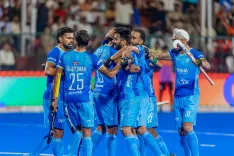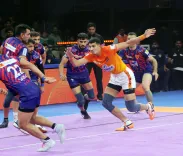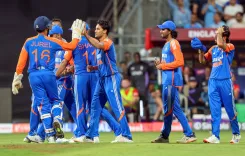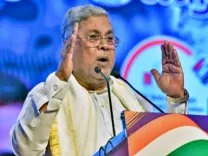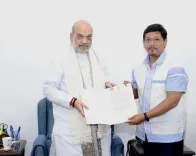What Steps is Dr. Mandaviya Taking to Enhance Anti-Doping Research?
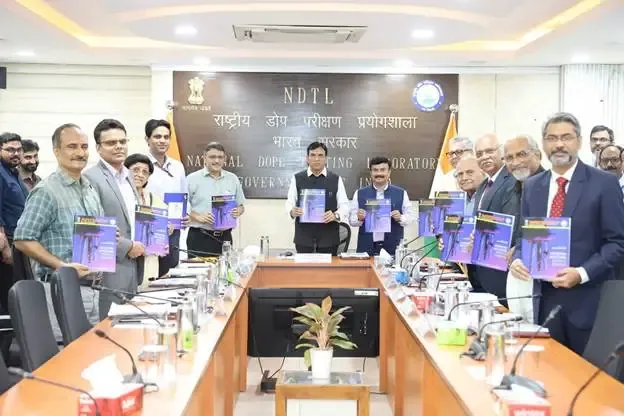
Synopsis
Key Takeaways
- Methandienone LTM launched as a crucial chemical standard.
- Initiatives support cutting-edge research in anti-doping.
- Collaboration between NDTL and NIPER emphasizes self-reliance.
- New frameworks introduced for scientific recognition.
- India positions itself as a leader in clean sports.
New Delhi, Sep 4 (NationPress) Union Minister for Youth Affairs & Sports and Labour & Employment, Dr. Mansukh Mandaviya, inaugurated an indigenous Chemical Reference Material - Methandienone Long-Term Metabolite (LTM) - a vital chemical standard crucial for anti-doping analysis in all World Anti-Doping Agency (WADA)-accredited laboratories, at the National Dope Testing Laboratory (NDTL) on Thursday.
The creation of this new Reference Material (RM) is a collaborative effort between NDTL, New Delhi, and the National Institute of Pharmaceutical Education and Research (NIPER), Guwahati, showcasing the essence of Atmanirbhar Bharat and representing a significant leap forward in the field of anti-doping science in India.
This Reference Material, intended for distribution among all WADA-accredited labs globally as part of knowledge sharing, will stand as India’s contribution to advancing the anti-doping mission and promoting clean sports alongside scientific integrity.
Dr. Mandaviya launched the Reference Material during the 22nd Governing Body Meeting of NDTL. During this event, he also released the latest edition of NDTL’s Newsletter, which highlights the organization's recent scientific milestones, strategic partnerships, and its growing influence in international anti-doping initiatives.
Dr. Mandaviya discussed in detail the newly formulated extramural grant policies aimed at bolstering innovative research in anti-doping science. These grants are designed to motivate academic institutions, research facilities, and emerging investigators to engage in areas such as the synthesis of RMs for prohibited substances, pharmacokinetics, longitudinal biomarker profiling, and analytical development.
Further, Dr. Mandaviya assessed the progress of activities conducted by the laboratory under the Athlete Passport Management Unit (APMU), which he inaugurated at NDTL in April this year. He proposed expanding initiatives under this program to acquire more athlete biological passports from neighboring countries, positioning India as a central hub for this endeavor in the near future.
A new framework for recognizing and awarding scientific excellence was also introduced to celebrate outstanding contributions in doping control research, laboratory proficiency, and public awareness. These initiatives are aimed at nurturing a dynamic ecosystem focused on innovation, integrity, and collaboration.
The launch of this indigenous Reference Material today is a remarkable step in a series of reforms being implemented by NDTL in sports science, reinforcing its status as a ‘beacon of support for the Global South’, as previously noted by Dr. Mandaviya. This achievement not only augments India’s stature on the global stage but also reaffirms the nation’s dedication to ensuring transparent sports practices both nationally and internationally.


